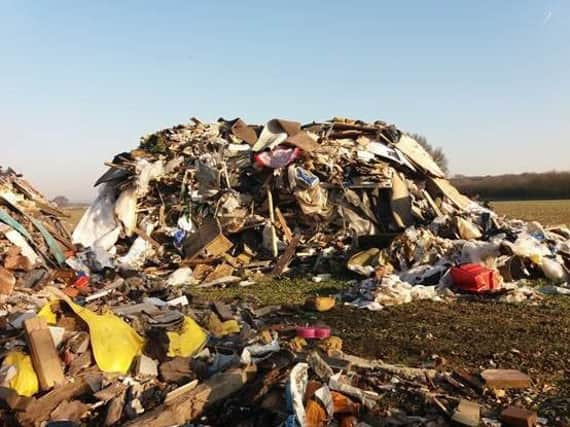Landowners need help to deal with flytipping


There were 900,000 incidents of illegally dumped waste reported across England last year - a five per cent increase on the previous year, according to figures from the National Farmers’ Union (NFU).
The union warned that the sight of dumped mattresses, carpets, dishwashers, old furniture and black bags of household waste was becoming a widespread sight on British farmland, with two-thirds of all farms said to be affected.
Advertisement
Hide AdAdvertisement
Hide AdTo compound the eyesore affects and the potential environmental impacts of such irresponsible behaviour, private landowners are left to arrange and pay for the removal of waste left on their land, and to fork out for the costs of any associated repairs or remedial work.
The NFU believes landowners are justified in demanding greater assistance from local councils, police forces and the Environment Agency, partly because of the £130m that rural tourism contributes to the nation’s economy.
Highlighting the issue as the Keep Britain Tidy campaign’s annual conference was held in Leeds earlier this week, the NFU said it should not be the sole responsibility of the landowner to deal with flytipping.
Speaking at the conference, NFU Environment Forum member Phil Jarvis said: “We have seen a huge increase in the number of incidents in recent years and it really has become a scourge of farmland across the country.
Advertisement
Hide AdAdvertisement
Hide Ad“The rubbish can be costly and time consuming for farmers to remove, it’s dangerous to human health, harmful to wildlife and livestock and in some cases, fly-tipped waste pollutes watercourses and contaminates land.”
He added: “To really clamp down on this huge and growing problem, we want to see more communication between local authorities, police forces and the Environment Agency to give those impacted more confidence to report, incidents that lead to investigation and prosecution, as well as more stop and search initiatives.”
The Country Land and Business Association (CLA)agreed that flytipping had become a real problem, saying the clean up was costing nearly £50m a year.
Dorothy Fairburn, the CLA’s director for the North, said: “The estimated average cost to rural businesses of this anti-social behaviour is £800 per incident and is a continuing and damaging blight on our countryside.
“Earlier this year, we welcomed new government regulations which enable local councils to issue fixed penalty notices or fines of up to £400 for small scale fly-tipping, but this is not enough.”